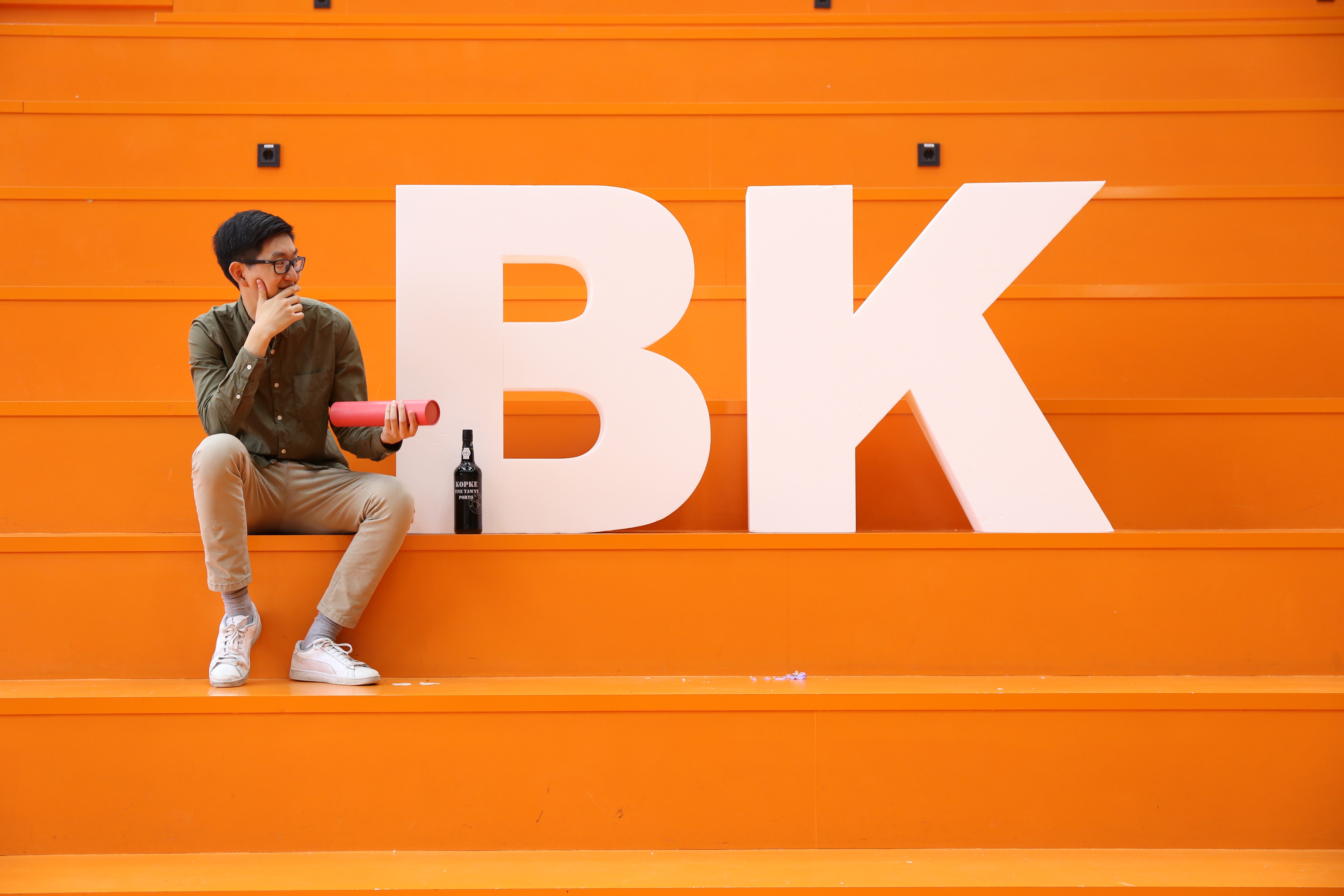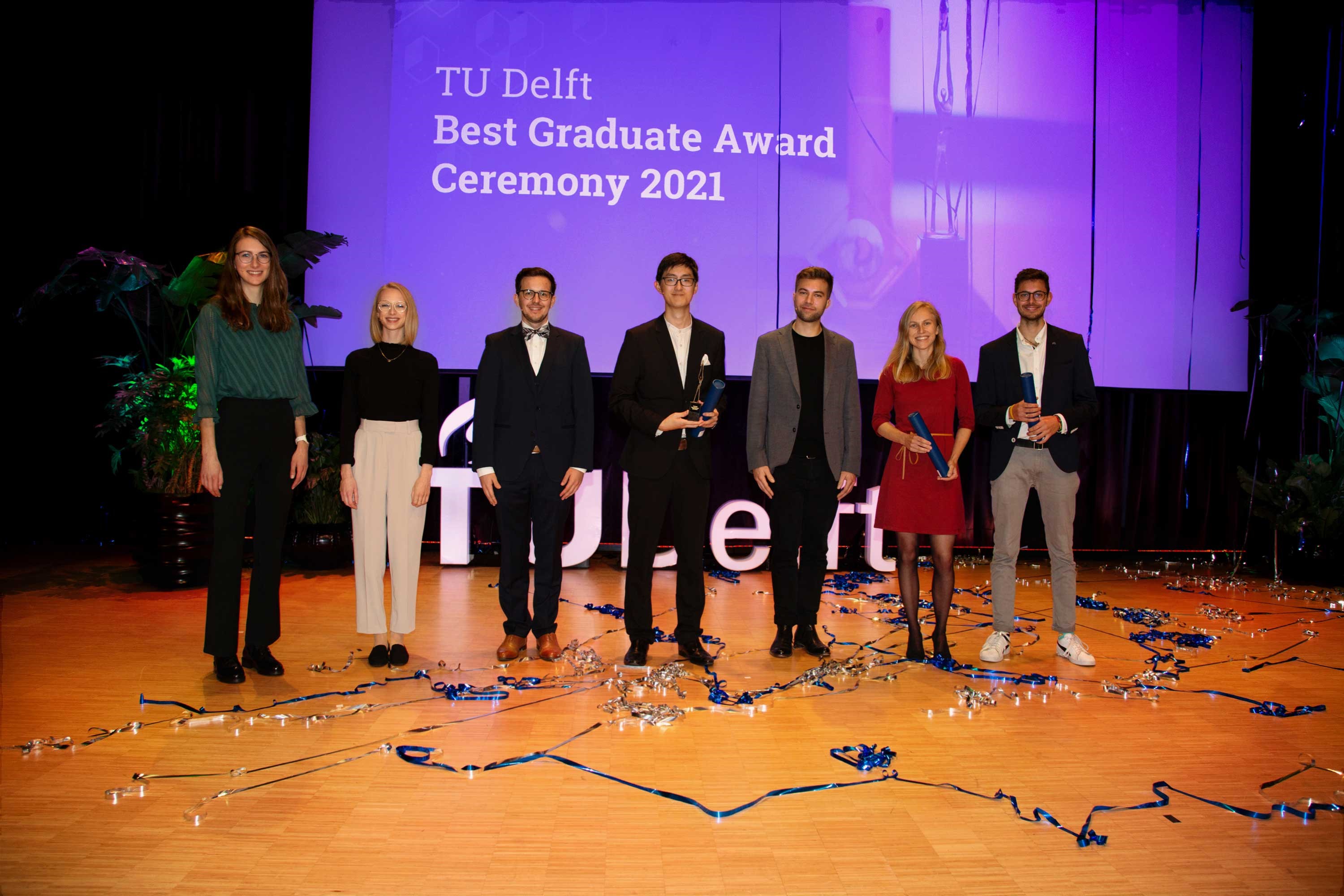Best graduates of 2021
Zhuo-Ming Shia has been elected TU Delft’s best graduate of 2021. Like the seven other nominees, he was awarded top marks by the Board of Examiners. Shia designed a socially responsible process for large-scale housing design.
The TU Delft Best Graduate Award ceremony, organised by the Delft University Fund, was broadcast live from the Aula Building this year. The eight best graduates from the respective faculties presented their Bachelor’s theses and shared the personal background to their study. Who are they, and what makes their work special?
Zhuo-Ming Shia
Architecture and the Built Environment
The worldwide shortage of homes prompted Zhuo-Ming Shia to develop a process for large-scale housing with the individual in mind. His design process involves the users/residents at a very early stage. “Architecture is amazing, but as architects we do have to attend to the most urgent problems in society”, he says. “Architecture can never merely revolve around lucrative projects that say something about the architect in question.” The method he proposes is intended to be used for mass housing, but leaves room for customisation. His own experience in Beijing is that increased demand for homes has resulted in new apartment buildings increasingly being located outside the city. “People have to move further away from where their social ties are, and that greatly affects their standard of living.”
Eduardo Gutiérrez Prieto
Mechanical, Maritime & Materials Engineering
The cilia in our body are important to our health. They help us transport fluids, such as mucous from the lungs. Eduardo discovered how cilia are activated – an insight that could help the medical world solve health problems. Gutiérrez Prieto: “Until now we suspected that cilia were activated by a protein in our body. The truth is far simpler: cilia vibrate of their own accord. My research has led to simplified modelling, allowing us to better predict and influence the behaviour of cilia.”
Friederike Nintzel
Applied Sciences
Friederike Nintzel wants to help make the pharmaceutical and chemical industries greener by making medicine production more sustainable. “Using enzymes could be an important game changer in this endeavour”, she says. “Enzymes are natural proteins that you can use as a catalyst to accelerate chemical reactions. Scarce raw materials are currently used as catalysts. The downside of using enzymes is that they do not always react exactly the way we had in mind, and their water footprint is large.” Packaging the enzymes in a coating of water-based jelly was the solution to both these problems. “The enzymes worked three times better than they did without this coating.”
Riel Bessai
Industrial Design Engineering
A modular chair made of blocks that store CO2 which you can convert into other furniture. “My Unito chair makes the global CO2 problem tangible; I hope it will get people to look at our consumer society through a different lens”, Bessai says. The Unito blocks are made of bio high-density polyethylene: a bioplastic in which you can capture CO2. Each block holds approximately one kilogram of CO2 , which therefore does not end up in the atmosphere. “The blocks will last at least a hundred years, which makes them a sustainable form of CO2 capture.”
Rico Herzog
Technology, Policy and Management
Urbanisation presents considerable challenges in terms of spatial planning. Rico Herzog mapped out conflicts of values within cities and developed a model for dealing with these conflicts. Conflicting values of residents and policymakers mean that it can take many years for a project, such as the construction of an airport or housing, to get off the ground. Herzog: “This has less to do with inefficient decision-making and more to do with the fact that policymakers and urban planners don’t have a clear picture of what values are in conflict and how to resolve this.” Using Rico’s model, urban planners can make better choices when it comes to planning public spaces.
Sarah Hanus
Civil Engineering and Geosciences
Rising temperatures are leading to snow and ice masses melting faster, resulting in significantly increased drainage of rivers in certain periods. Hanos investigated the change in water drainage in six river basins in the Austrian Alps. She conceived, designed and developed a new hydraulic model for predicting future drainage patterns of rainwater and melt water. “The diversity of the data and the amounts of data I wanted to include made this model very complex. Coding my own model was the best and the worst part of my thesis. I was quite euphoric when I finally got it to work.”
Marianne Schaaphok
Electrical Engineering, Mathematics & Computer Science
Twenty minutes under lukewarm running water: that’s first aid for burns. Mathematics can play an important role in determining which treatment to choose next. But for that to work, the models used to assess skin recovery must be fast. Marianne used neural networks to arrive at models that are more than a million times faster. Schaaphok: “Neural networks are known for their use in image and speech recognition especially. Interest in using them to achieve this kind of acceleration is a recent phenomenon.” Besides her proof of concept, Schaaphok also delivered two case studies regarding medical applicability, as well as an app that determines the structure of the skin based on age, skin colour, wound size and location.
Bart Duisterhof
Aerospace Engineering
Developing drones that are smaller and lighter than normal drones but still capable of performing the same tasks – Bart Duisterhof did just this. For his Master’s thesis, he developed smart, inexpensive mini drones that can independently detect gas leaks. “Spaces like these are often inaccessible or poorly accessible and involve the danger of explosion”, Duisterhof says. That’s a problem for emergency services, but also for large, expensive drones. He is keen to emphasise that the technology can also be used for other purposes. “Greenhouses, for example, where mini-drones can detect weeds or rot among the plants.”
Each year, Delft University Fund organises the TU Delft Best Graduate Award Ceremony. TU Delft’s eight faculties nominate their Best Graduate. Read the full stories of all the 8 nominees here.

